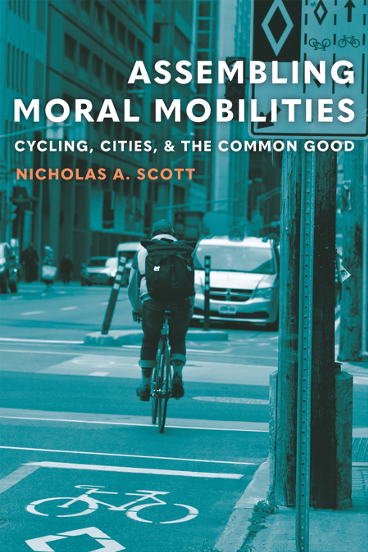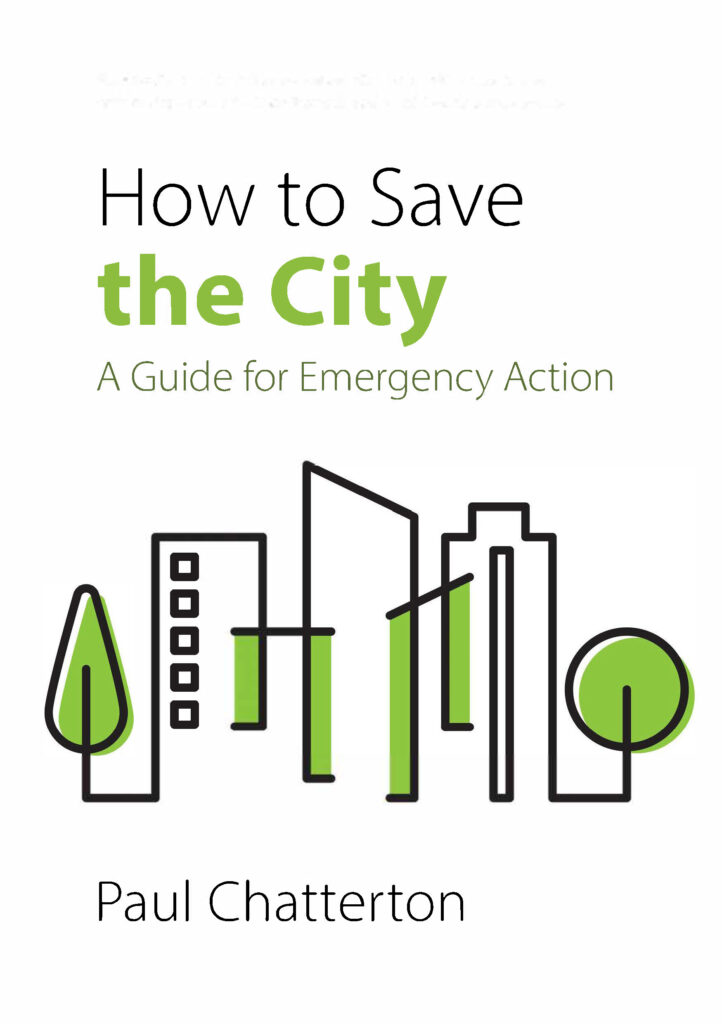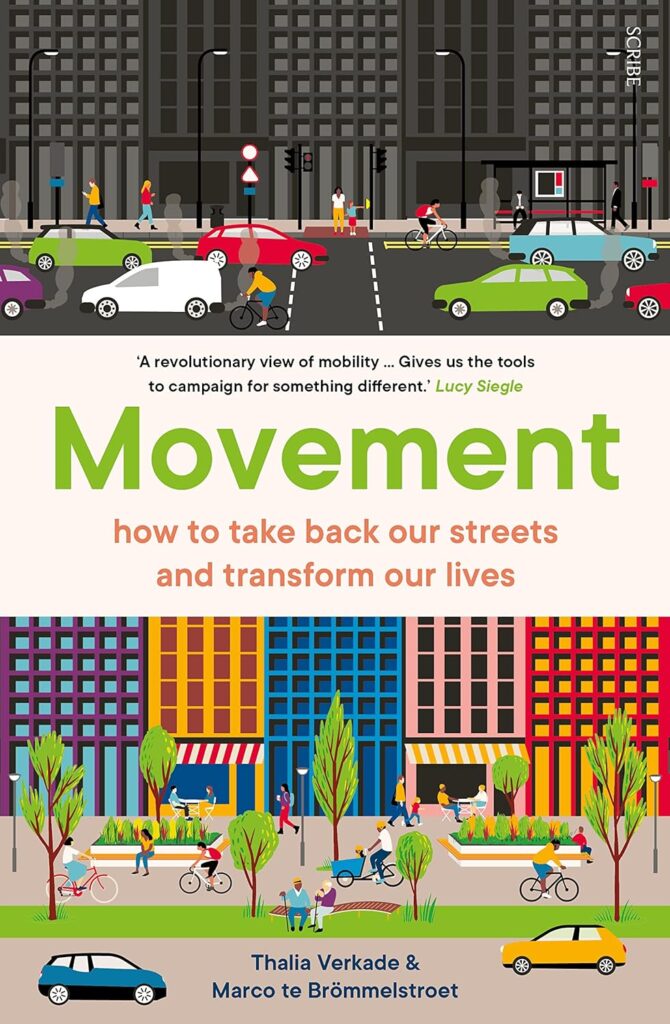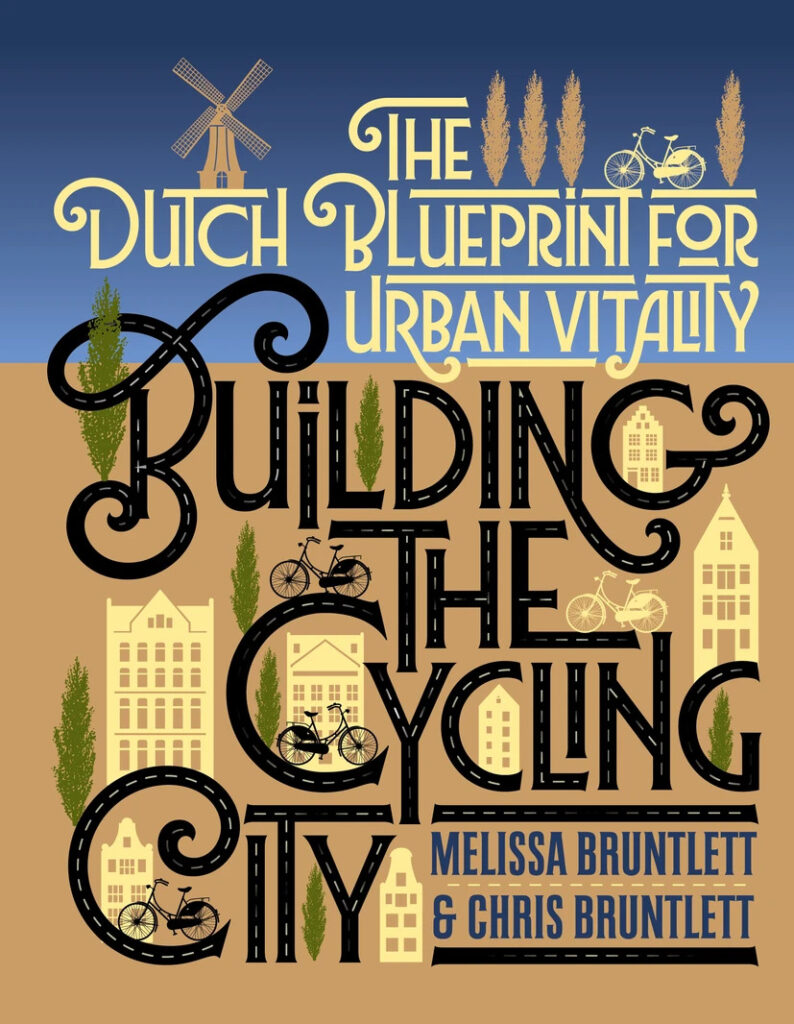
What is it about?
Cycling is the much heralded simple solution for a wide variety of complex urban mobility problems. Pitted against a background of cities that are built around car mobility and streets that have been dominated by car traffic for many decades, it is tempting to frame this as the good (bike) versus the bad and the ugly (car).
This book helps us to become more reflexive on this frame and more sensitive for the complex moral meanings that are connected to mobility. Driving builds on certain notions of what a good life, a good city or good mobility is. The viability of cycling as a true alternative for driving, depends for a large part on how it can reproduce similar notions. But also, the choices we make in how cycling will be developed will not be neutral; we need to keep discussing of what the good cycling city is.
“While mobilities science helps explain what must change to move society from driving to cycling, it falls short of illuminating what a morally good city for cycling looks like and how it builds on, and diverges from that of driving” (p.11). Scott aims to add new tools to the toolbox of transport scientists and planners that help them to expand the notion of transport as simply getting from point A to point B and include the social meaning that it entails. He does so by introducing the concept of ‘moral assemblages’ as “durable configurations of public judgments, social practices, and qualified infrastructures that advance particular moral worths” (p.16). There is constant competition between such assemblages as they exist simultaneously.
Scott introduces “five moral assemblages of mobility based on five canonical understandings of the common good: industrial, market, domestic, civic, and ecological mobilities” (p.17). For each, he uses ride alongs, interviews and observations in the North-American context to explore first how driving has built on each moral assemblage and what lessons cycling can take from that. Through this he explores how cycling can link, or build on, each specific set of ideas of the common good.
One of the crucial insights is that “humans […] face a profound indetermination of the good life, the good city, and indeed, good mobilities” (p.219). In a domain that is in many respects highly depoliticized and strongly technocratic this is a very important notion. It basically points us to take a step back and make mobility problems and solutions, even when they are presented in simple good versus bad terms, topics of profound political debate. It helps first of all to be able to see the implicit moral assemblages that currently frame our thinking around cycling: industrial mobility focusing on efficiency and neoliberal market mobility. Scott also shows how this is changes and becoming more encompassing throughout the different waves of cycling planning in the Canadian context. Scott advises to go toward a plurality of good cycling futures, especially to avoid a neoliberal market approach crowding out other assemblages. Expanding the connections of cycling with civic, domestic and ecological mobility could lead to a more progressive cycling politics.
What approach does it take?
The book is filled with rabbit holes for relevant sociological literature. The empirics mainly come from ride-alongs, interviews with cyclists, interviews with mobility planners and discussions of planning documents.
Who might be interested in this book?
Who should be interested in this book: everybody working in mobility planning in relation to cycling, and everybody used to see cycling automatically as a better practice that solves a wide variety of urban mobility problems.
Who might be interested: scholars and thinkers that are working on the interplay between sociology and mobility. For them, this book offers great material to expand the conceptual toolbox and a great case in the cycling renaissance of Northern American cities.
Further details
Academic disciplines: Urban planning, sociology, history
Geographical scope: Canada (and USA)
Relation to cycling: Expands the idea of cycling as intrinsically good into a more pluralistic understanding of competing moral meanings of mobility
Reference (APA): Scott, N.A. (2020). Assembling Moral Mobilities: cycling, cities, & the common good. Lincoln: University of Nebraska Press.



